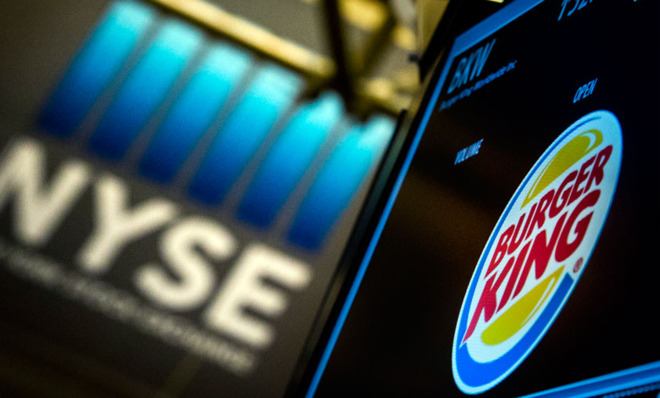4 perspectives on Burger King's move to Canada
Corporate tax inversions aren't just for drug companies anymore

A free daily email with the biggest news stories of the day – and the best features from TheWeek.com
You are now subscribed
Your newsletter sign-up was successful
Corporate tax inversions aren't just for drug companies anymore, said Jon Healey at the Los Angeles Times. Though the past few months have seen a flurry of such deals, in which U.S. companies acquire smaller foreign targets to move their headquarters overseas and reduce their tax bills, the practice has mainly been limited to pharmaceutical firms. But last week's announcement that Miami-based Burger King would buy Canadian coffee-and-doughnut chain Tim Hortons for $11 billion and move north of the border shows "the maneuver is spreading to more corners of the business world." That's no surprise; U.S. companies are subject to a 35 percent corporate tax rate, the highest in the world, and the U.S. "is the only country to tax income earned outside its borders."
But the Tim Hortons deal isn't really about taxes, said Devin Leonard and Venessa Wong at BloombergBusinessweek. Though Canada's corporate tax rate is lower than ours, at about 26 percent, moving north won't translate into huge savings for the burger chain, which already pays an effective tax rate in the U.S. of just 27 percent. "It's easier to understand Burger King's motivation if you know something about 3G," the Brazilian private equity firm that bought Burger King in 2010. The people at 3G aren't restaurateurs — they're bankers, and their deals are "designed to keep Wall Street happy." So far, that has meant an aggressive expansion strategy, predicated on "new outlets in places like China, Russia, and Brazil." But that growth can go only so far with a single brand, and the 3G bosses were "surely planning to purchase more fast-food chains from the start." Enter Tim Hortons, with all its expansion potential.
Don't dismiss the tax angle too fast, said Jordan Weissmann at Slate.com. Burger King executives have called the company's relocation a formality meant to ensure the deal's approval by Canadian regulators, who can block foreign takeovers of Canadian companies that aren't "in the national interest." But "the argument that Burger King is just trying to appease some touchy Canadian regulators seems a bit thin," especially given that Tim Hortons was owned by U.S.-based Wendy's for around a decade "without any obvious ill effects on Canada's national doughnut reserve." Growth — not tax-savings — may be the primary motivator here, but make no mistake: Taxes "are almost certainly part of the equation."
The Week
Escape your echo chamber. Get the facts behind the news, plus analysis from multiple perspectives.

Sign up for The Week's Free Newsletters
From our morning news briefing to a weekly Good News Newsletter, get the best of The Week delivered directly to your inbox.
From our morning news briefing to a weekly Good News Newsletter, get the best of The Week delivered directly to your inbox.
You're all missing the point, said The Economist. This deal "is a prime example of the mind-boggling hyperactivity" of modern corporate finance. If Burger King relocates to Canada, "it will have had seven different parents or corporate structures in less than 20 years," and it's hardly alone. While occasional reinvention can make sense, "chronic instability is often bad for business." And considering private equity firms, like 3G, "typically hold a firm for only five years," it's hard not to think "that much corporate freneticism happens because it creates opportunities for market timing, generates fees for bankers and lawyers, and allows lucrative financial engineering." Perhaps Burger King's owners "will settle down to the long-term effort needed to turn corporate junk food into a Michelin-starred meal." But don't count on it. These days, the corporate world "has more headless chickens than a KFC kitchen."
A free daily email with the biggest news stories of the day – and the best features from TheWeek.com
Sergio Hernandez is business editor of The Week's print edition. He has previously worked for The Daily, ProPublica, the Village Voice, and Gawker.


